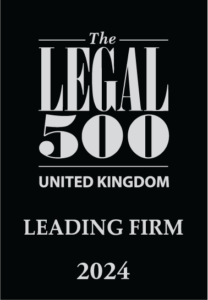Company, commercial and corporate law covers a myriad of topics reflecting the challenges and opportunities of business life. Starting a business, financing it to help it to grow, working with others in a joint venture or merging or selling the business or company all need legal expertise and, often, the ability to deal with complex problems in a short timescale.
Commercial law raises a different range of issues. Agency or distributorship agreements, commercial contracts and terms and conditions of business, consumer contracts, website use and sales may be an integral part of your business and it is essential that they are clear and give you the legal protection that you require in your business relations.
Corporate law, including governance and regulatory law, is all too often neglected or regarded as a source of frustration by many entrepreneurs, but it must not be ignored. Failure to comply with company law or with regulatory law such as data protection can result in serious problems at critical moments – the due diligence for a major re-financing or before a sale for instance –or, even worse fines and penalties. It is important to have a legal team that can help you through these issues and let you concentrate on running your business.
Why choose our corporate & commercial solicitors?
Lester Aldridge’s Corporate & Commercial team blends a wealth of experience with strength in depth so that we can advise you on all the main areas of commercial and company law – and some of the more obscure areas too! We are part of one of the largest law firms on the South Coast and can provide an all-around service bringing in other solicitors with experience in employment, real estate and dispute resolution where necessary.
If your business works overseas, we can help you access legal and accountancy advice in a wide range of countries through our membership of MSI Global Alliance, a worldwide network of lawyers and accountants in over 100 countries.
Our clients include all businesses in all sectors from software development to care homes and manufacturing to hotels and hospitality. Whatever the sector however we will take the time to understand your business and your goals to tailor our services to your needs.
Corporate governance
A successful business will have a strong legal framework that enables it to operate confidently and within the law. It may need to evolve as the company grows and it should be sufficiently robust to see it through difficult times.
The framework is the combination of the legal structure of the business and the policies and procedures by which a company is operated and controlled, also known as corporate governance.
The expression “corporate governance” is often used in relation to the complex arrangements of large institutions or major public companies but it is applicable to all companies and partnerships. Whatever the size of your business, it’s important to consider:
- Do the articles of association or partnership agreement properly reflect how the business is run?
- How are decisions made?
- Are the directors confident that they are carrying out the duties of directors set out in the Companies Acts?
- How are profits to be distributed between the people involved?
- What will happen if someone wants to leave?
- Is a separate shareholders’ agreement needed to set out the principles upon which the business will be run and detailed provisions about the relationship between the participants?
- How are any disputes to be resolved?
Our team are happy to help with this and offers regular reviews to ensure you’re fully compliant with the latest changes in corporate governance law. We’re also on hand with practical solutions and advice should any issues occur during the lifetime of the company.
Corporate transactions
Few businesses are static organisations. Some may be looking to grow by merger or by the purchase of another business or company. Others may be considering the sale of the whole or part of a business.
In other cases, a joint venture or possibly a merger with another company may enable each to make the most of a business opportunity that would not otherwise be open to them.
A crucial element in the growth and long-term success of a business is finance. We can advise on private investment and bank lending and security.
Commercial law
Any business, from start-ups to well-established, group organisations, is likely to require a range of commercial contracts to cover its various business activities and its relationships with its customers and suppliers. At the heart of every business arrangement, for example for the purchase or sale of goods or services, will be a contract setting out the responsibilities of each party. Examples of commercial contracts are terms and conditions of sale or purchase, service agreements, framework agreements, agency or distribution agreements, confidentiality agreements or intellectual property licensing agreements.
Each type of contract will have its own unique requirements, however, generally speaking, any agreement should clearly set out the obligations on each party. A carefully drafted contract can avoid disputes arising, and in the unfortunate case that they do arise, should suggest ways for the parties to resolve the dispute or, in a worst-case scenario, to exit the arrangement.
Key elements to be covered are the term of the agreement, and goods or services to be supplied, the payment terms for such goods or services, any specific obligations on each party, the law governing the contract and the courts which can hear a dispute, whether any mediation or alternative dispute resolution procedure should apply, in what circumstances the parties can terminate the agreement and what the consequences of termination are.
As well as tangible goods, it is important to protect any intellectual property in your business. It can be profitable to license your intellectual property to another person or entity, so that they perhaps have the right to display your copyrighted works or utilise your business’ registered trade mark(s) with their own marketing material or products. A licensing agreement should clearly define and protect your intellectual property rights and strictly control how the other party can use them.
Legislation frequently changes and businesses should regularly review their documentation, particularly documents which are used on an ongoing basis such as terms and conditions, to ensure they remain compliant and enforceable. Areas such as consumer law or data protection have seen significant changes in recent years.
Commercial law is therefore a wide area and any commercial agreements should be carefully considered and tailored to the requirements and circumstances of each business and its arrangements with third parties.
Regulatory law
The most basic regulatory requirement for a company is to keep its statutory registers and filings at Companies House up to date. We offer a range of company secretarial services from a simple registered office service to an appointment through our company LA Company Secretarial Services Limited as the company secretary.
Data protection legislation has come to prominence since May 2018 and the introduction of GDPR and the Data Protection Act 2018. Two of our corporate and commercial solicitors are qualified Chartered Institute of IT data protection practitioners.
Elsewhere in the firm, we have experts in health and safety law, the regulatory regime that applies to care homes and hospitals, and other areas, enabling us to provide a comprehensive service.
























